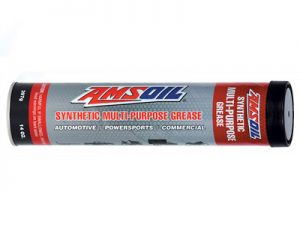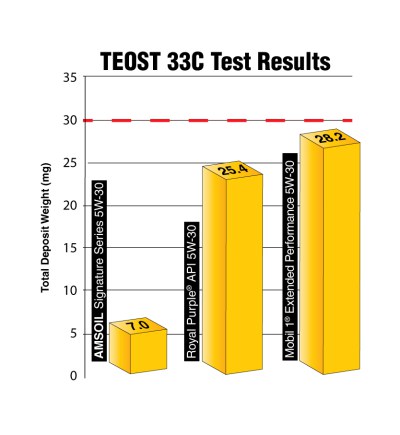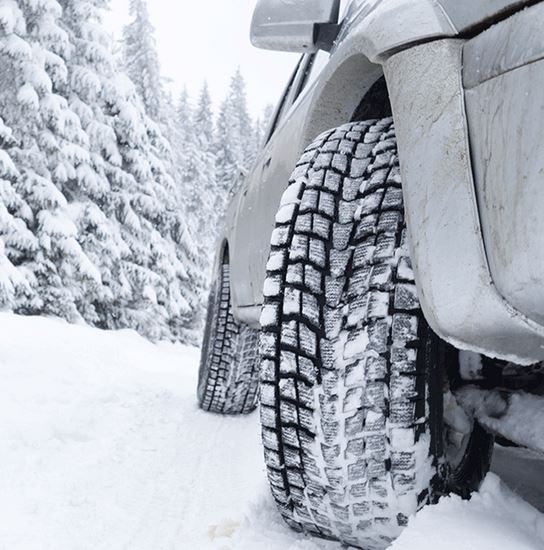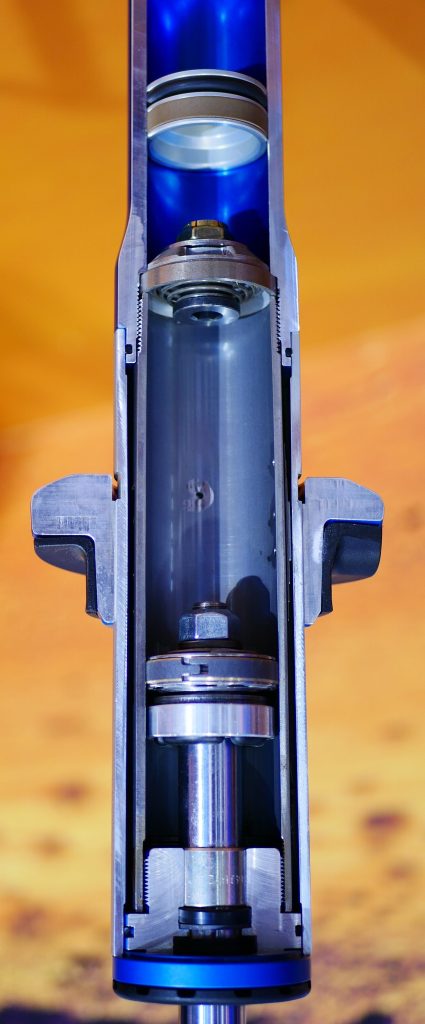A Closer Look at Grease
AMSOIL Offers Full Line of Premium Synthetic Greases for a Wide Range of Applications.
Grease Components
Grease is comprised of two structural components: a base fluid and a thickening agent. Different types and combinations of base fluids and thickeners, along with supplemental structure modifiers and performance additives, combine to give the final product its special lubricating properties.
Many different types of base oil may be used in the manufacture of a grease, including petroleum (naphthenic, paraffinic) and synthetic (PAOs, esters, silicones, glycols). Just as with motor oils and transmission fluids, the viscosity of the base oil is the most significant property. A lighter, lower-viscosity base oil is used to formulate low-temperature greases, while a heavier, higher-viscosity base oil is used to formulate high-temperature greases.
Thickener is added to the base oil in order to thicken it to a grease structure. The two basic types of thickeners are organic and inorganic. Organic thickeners can be either soap-based or non-soap-based, while all inorganic thickeners are non-soap-based.
Simple soaps are formed through a process known as saponification, where a fatty acid or ester (of either animal or vegetable origin) is combined with an alkali or alkaline earth metal and reacted with the application of heat, pressure or agitation. The fiber structure provided by the metal soap determines the mechanical stability and physical properties of the finished grease.
To enhance the grease’s performance characteristics (including dropping point and load-carrying ability), a complexing agent may be added to the soap thickener to convert it to a soap-salt complex thickener. Greases formulated with soap-salt complex thickeners are referred to as “complexes” and include lithium complex and calcium-sulfonate complex greases.
Additives such as extreme-pressure, anti-wear and friction-reducing agents are added to the grease to enhance performance, much like the additives in lubricating oils. Performance requirements, compatibility, environmental considerations, color and cost all factor into additive selection.
Grease Properties
Greases are classified into nine consistency grades (000, 00, 0, 1, 2, 3, 4, 5, 6) established by the National Lubrication and Grease Institute (NLGI). NLGI #000 greases are nearly fluid, while NLGI #6 greases are nearly solid. The most commonly used grease is NLGI #2. Softer grades are often used for improved pumpability or low-temperature service, while harder grades are used where leakage or sealing are particular concerns.
The Cone Penetration Test (ASTM D217) measures grease consistency. Under prescribed conditions, a standardized cone is allowed to drop into the grease for five seconds, and the level of penetration (in tenths of a millimeter) is measured to determine its NLGI consistency number. The higher the penetration number, the lower the consistency number.
Performance Specifications (Automotive)
The Standard Classification and Specification of Automotive Service Greases (ASTM D4950) sets performance specifications for automotive chassis (LA, LB) and wheel-bearing greases (GA, GB, GC), with the LB and GC specifications representing the highest performance levels.
DOMINATOR® Synthetic Racing Grease
NLGI #2, GC/LB
High-Performance and racing applications
Synthetic Polymeric Truck, Chassis and Equipment Grease
NLGI #1 and NLGI #2
Heavy-duty over-the-road applications, including tractors and trailers, delivery fleets, dump trucks, refuse haulers, utility fleets, emergency service vehicles and more.
Synthetic Multi-Purpose Grease
NLGI #2, GC/LB
Heavy- and light-duty applications, including automotive wheel bearings.
Synthetic Water-Resistant Grease
NLGI #2, GC/LB
Vehicles and trailers frequently exposed to water, mud, snow and ice.
X-Treme Synthetic Food Grade Grease
NLGI #2, NSF-APPROVED
(Formerly USDA H-1)
Food service and pharmaceutical industry equipment.
Synthetic High Viscosity Lithium Complex Grease
NLGI #2
Heavy-duty industrial machinery. NLGI #2
Synthetic Polymeric Off-Road Grease
NLGI #1 and NLGI #2
Heavy-duty off-road applications, including agricultural, construction, landscaping, logging and mining equipment.
Semi-Fluid Synthetic EP Grease
NLGI #00
Leaky gear boxes in industrial and fleet applications, centralized lubrication systems, truck wheel hubs and applications that are difficult to service.
| NLGI# | Penetration | Consistency | Food Analogy |
| 000 | 445 – 475 | Fluid | Cooking Oil |
| 00 | 400 – 430 | Semi-Fluid | Applesauce |
| 0 | 355 – 385 | Very Soft | Brown Mustard |
| 1 | 310 – 340 | Soft | Tomato Paste |
| 2 | 265 – 295 | “Normal” Grease | Peanut Butter |
| 3 | 220 – 250 | Firm | Veg. Shortening |
| 4 | 175 – 205 | Very Firm | Frozen Yogurt |
| 5 | 130 – 160 | Hard | Smooth Paté |
| 6 | 85 – 115 | Very Hard | Cheddar Cheese |









